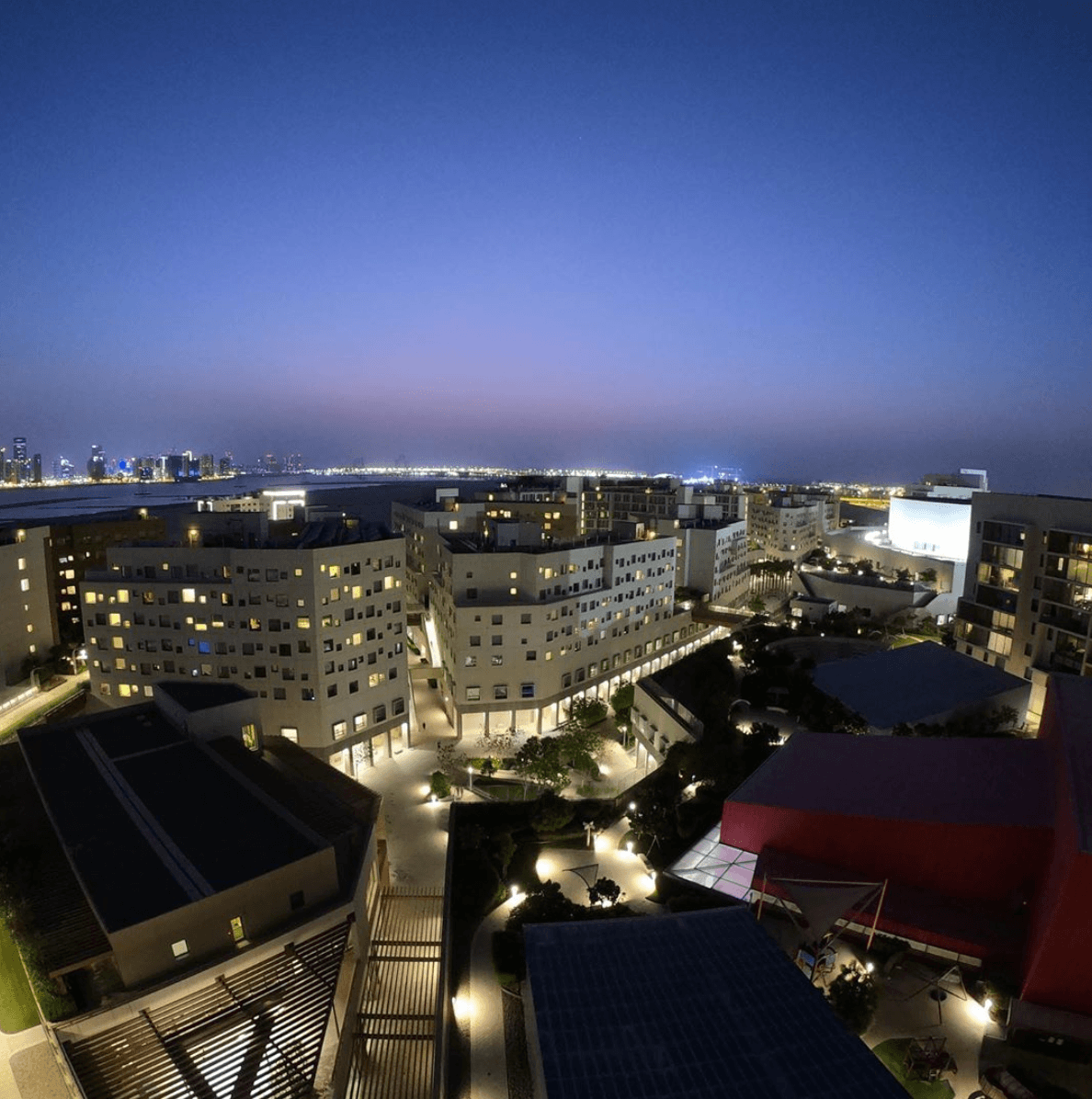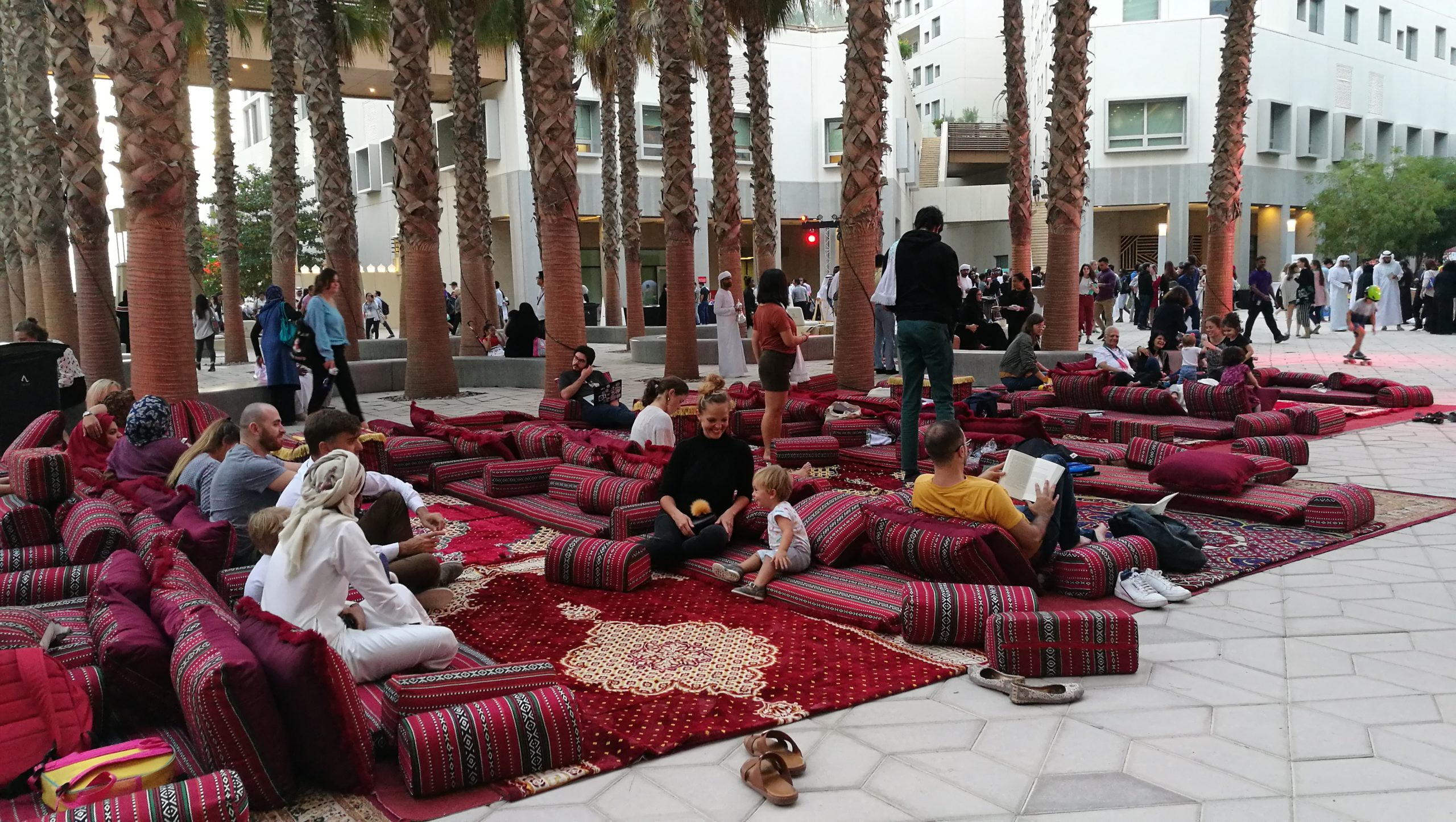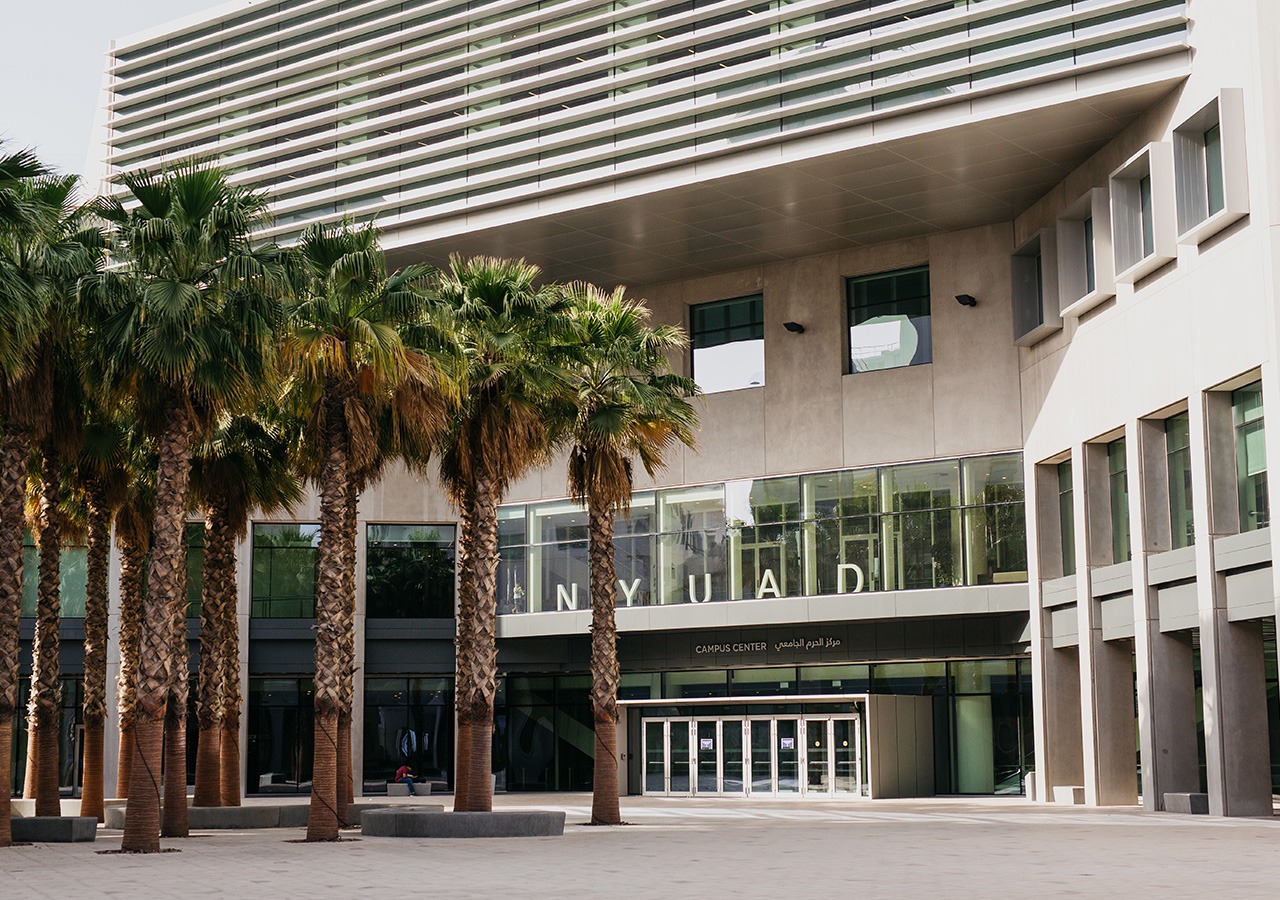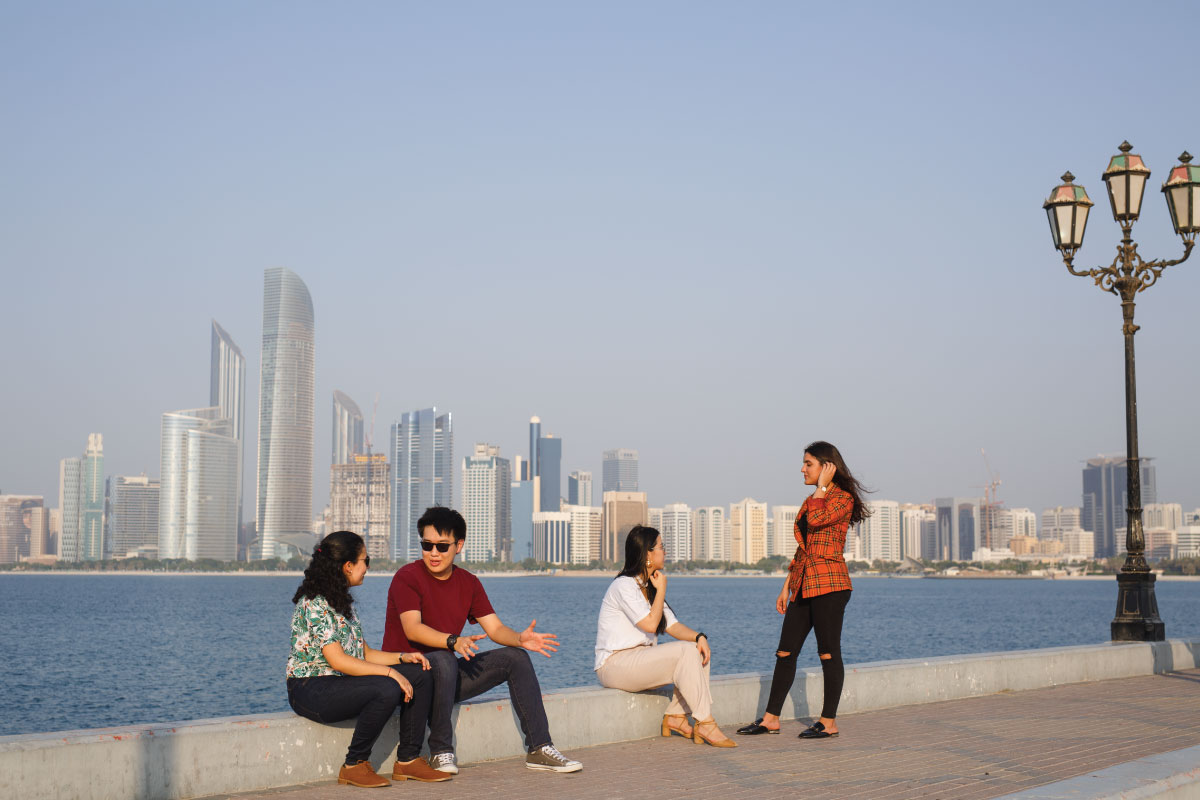
What if your major focused on the city, country, and region where your college is located? And what if it took full advantage of every connection, possibility, and opportunity your surrounding environment offers? The Arab Crossroads Studies program at NYU Abu Dhabi—a tight-knit, diverse campus at the center of the Arabic-using world—does just that. In short, it dives deep into the Arab world’s past, present, and future from the United Arab Emirates (UAE). Whether you picture your future self in business, law, education, social justice, diplomacy, journalism, or the cultural sector, this interdisciplinary major gives you the freedom to explore your interests while gaining vital, foundational knowledge about a dynamic and rapidly transforming region—where you just so happen to be living and studying!
A Progressive Reframing of Traditional Middle East Studies
Its geographic proximity to Africa, Asia, and Europe positions the Arab world as a center. Because of this, it has been a hub of cultural, economic, and religious exchanges for centuries. Today, it is home to over 450 million people living across 22 countries. Accordingly, it an epicenter for some of the most important issues of our time, from adapting to climate change to repairing the ramifications of colonialization.
“We have a unique, interdivisional department. There are faculty in the social sciences, arts, and humanities,” explains Professor Justin Stearns, program head of Arab crossroads studies. “Our students gain a multidisciplinary understanding of the broader Arabic-speaking world, which stretches far beyond the Arab Middle East.”
Senior Sudit K. Sahoo, who is from Bhubaneswar, India, plans to pursue a career in journalism. One of his favorite aspects of the program is the variety of courses. “I’ve had the opportunity to take courses in music, literature, language, politics, and religion.” In addition, they all count toward his major.
What makes the Arab Crossroads Studies program unique is an emphasis on immersion. Whenever possible, students are out in the field, learning through direct experience. “Experiential learning is built into the program,” notes Professor Stearns. “In courses like Anthropology and the Arab World and Youth in the Middle East, we take short field trips to interact with what we’re learning about in real time.”
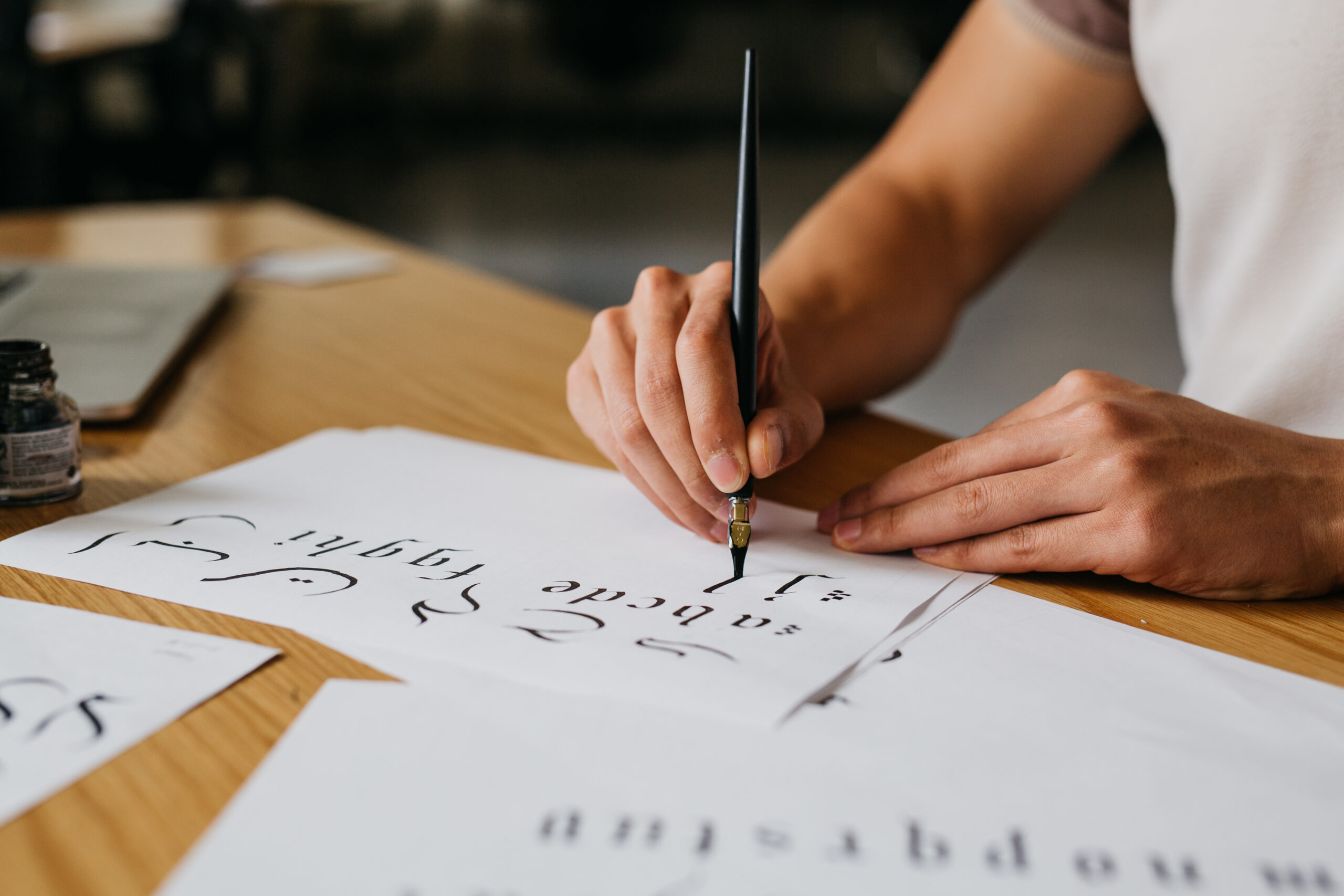
An Incredibly Rewarding Challenge
All Arab crossroads studies students begin with an overall knowledge base through introductory courses. For example, students may take Emergence of the Modern Middle East and Introduction to Modern Arabic Literature. What’s more, two years of Arabic language study is built into the curriculum. “I came to NYU Abu Dhabi with no experience in Arabic,” remarks senior Polina Pinskikh, who hails from Almaty, Kazakhstan. “While the program is rigorous and demanding, the supportive and knowledgeable faculty and the excitement of seeing my progress have made it one of the most rewarding aspects of my time here.”
Afterward, you build your own focus through one of three lenses: history and religion, society and politics, or arts and literature. Polina, for example, furthered her interest in the arts through courses like Representing the Middle East: Issues in the Politics of Culture. Another of her favorites is Feminism and Islamism in the Middle East and North Africa. “It encouraged me to think more critically about what it means to be a feminist in different contexts,” she shares.
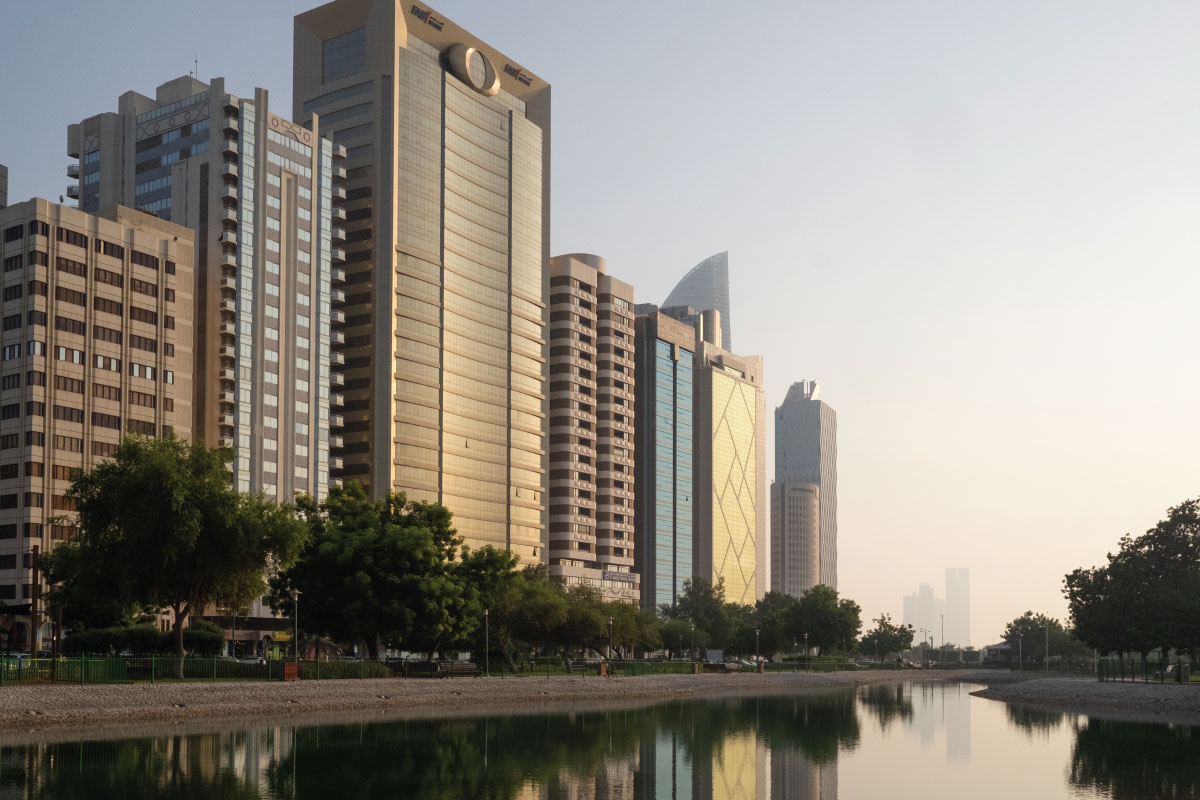
A Holistic, Multidisciplinary Approach, Shaped By Your Interests
In your senior year, your studies culminate in a Capstone Project that you develop with support from faculty mentors. For example, Shamma Alzaabi, a senior who grew up in Abu Dhabi, is conducting ethnographic research. She explains her approach: “I’m gathering personal histories and the like for an ethnographic exploration of how the rapid social and urban development of the UAE influenced the way we define freej, a traditional neighborhood in the UAE that centers community. It has been exciting to work on something that hasn’t been written about or studied yet.”
For Amina Rotari, a sophomore from Chișinău, Moldova, the Arab Crossroads Studies major offers something special. “You have a community and faculty that are ready to be there for you,” she says. “That’s something I think is so special about the program.”
In addition, Polina says, “It’s amazing how my lived experiences in Abu Dhabi and the broader region are enriched by and contribute to what I have learned in the classroom. Arab crossroads studies has helped me make the most of living in the UAE and interacting within the local context.”

